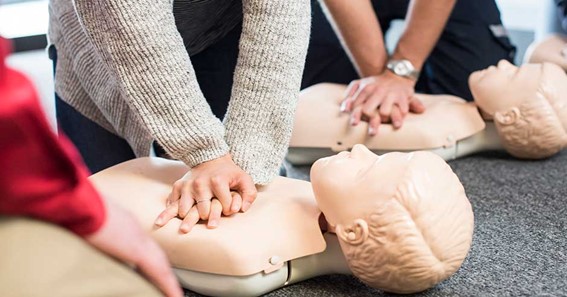CPR is one of the most important life saving skills because it not only makes you able to respond to an emergency but it also gives you the knowledge and the tools you need to help save lives.
Getting a CPR certification is very important and can make all the difference. Knowing how to save someone’s life will always be a marketable skill, which means that if you sign up for an affordable CPR certification while you’re young, it can pay off in the long run.
That said, we have put together this list of six careers where a CPR certification can be a lifesaver in more ways than one.
A Medical Assistant
Medical assistants are medical professionals who can do everything from answering phones to updating patient records. Most hospitals have begun to rely heavily on their assistants to ensure smooth things. And although they have less responsibility than doctors or nurses, they are still required to learn crucial life-saving skills, including CPR. In fact, all personnel who work in the healthcare industry are required by law to get first aid and CPR courses.
An Electrician
The job of an electrician can be strenuous. Whether they are crawling through attics or repairing wiring, electricians are regularly put in potentially hazardous situations that may require them to use CPR techniques on another person.
A Firefighter
One of their main duties is to help people overcome medical emergencies, so they must deal with any issues that may arise.
Many fire departments have paramedics who can respond to such calls, but every firefighter must pass cardio-pulmonary resuscitation (CPR) certification tests. If they don’t perform CPR on patients who suffer cardiac arrest or other emergencies, they could die before paramedics arrive at the scene.
A Nanny
Nannies are often alone with children, making them vulnerable to accidents and injury. Whether it’s an allergic reaction or even simple fainting spells, a CPR certification can help you handle medical emergencies while taking care of someone else’s children.
An Airline Employee
Every airline employee has to have at least a basic knowledge of CPR. Part of their job is to care for passengers in case there’s an emergency on board. If someone onboard passes out or goes into cardiac arrest, they must know how to respond appropriately and quickly to save lives.
A Lifeguard
Every lifeguard worth their salt has at least one emergency medical certification, and for a good reason. Lifeguards have direct access to and supervise large numbers of people, making them vulnerable to injury.
A sudden bout of heart problems or a panic attack can quickly become an emergency when no one else on-site can step in and help stabilize a victim. They might not be doctors, but that doesn’t mean they don’t need to know CPR.
To Sum It Up
Everyone knows that you should keep your wits about you when dealing with emergencies, but you still may not understand the importance of being able to respond to them quickly and effectively. In today’s world, where we’re all encouraged to think less and act more, knowing how to respond to an emergency is more important than ever.
In some cases, giving someone CPR in an emergency could save their life. If you have the training, it’s always better to be safe than sorry.







